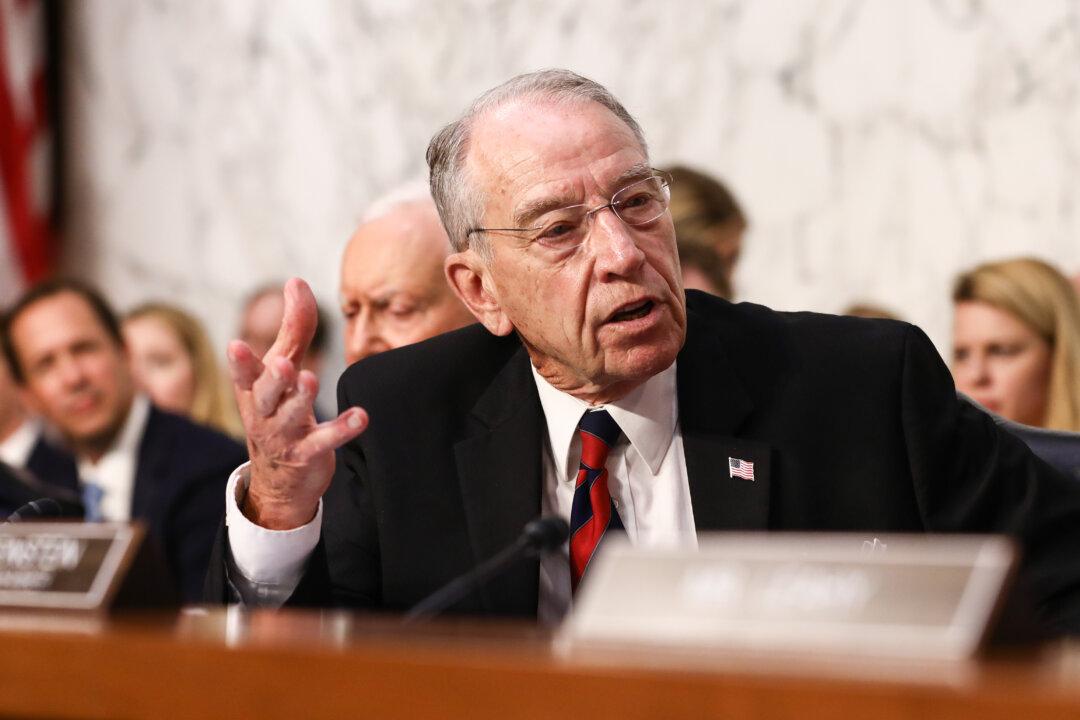Sen. Chuck Grassley (R-Iowa) has expressed dissatisfaction with a White House response to his concerns over the rationale for President Donald Trump’s firing of two inspectors general.
Grassley, in a statement Tuesday, acknowledged Trump’s “constitutional and statutory authority” in dismissing the inspectors general for the State Department and Intelligence Community but noted that White House Counsel Pat Cipollone failed to provide sufficient justification for the firing.





